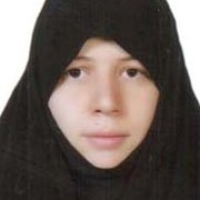Theoretical Framework of the Demand for Money Based on an Islamic Approach (Model based on interference generation approach)
A better understanding of the demand for money in economics with an Islamic approach can influence macroeconomic analysis and contribute to the richness of Islamic economics literature. The present study examines and critiques the demand for money at the macro level (with micro-bases) in economics based on an Islamic approach and presents a model based on the interfering generation approach model by using a mathematical model. The demand for money is extracted for a hypothetical (ideal) Islamic society in which money is offered only by the government (central bank) and only once in the proposed model of the article. Factors influencing the demand for money in the theoretical study were according to the findings of study: Income, religious beliefs, inflation, consumption. In the proposed model, each of them was proved: income is the wage in the proposed model which the demand for money has a positive and direct relationship. Religious beliefs were included in the utility function. Inflation is directly related to the demand for money that was also expressed in the form of price ratios in the model. Consumption in the proposed model also has a positive effect on money demand.
-
Evaluation of two self-based and integrated approaches in Islamic economic methodology (With emphasis on the views of Shahid Sadr and Anas Zarqa)
Payam Fazli *, Amir Khadem Alizadeh, Mahmoud Eisavi, Seyed Ehsan Khandoozi
Journal of Economic Literature, -
Meta-Analysis of the Effect of Central Bank Independence on Inflation
MohammadJavad Nourahmadi, , MohammadBagher Shirmehenji *
Iranian Journal of Economic Research, -
Theoretical framework of money supply (Comparative Comparison of Conventional Economics and Economics with Islamic Approach)
Mahmoud eisavi*
Journal of Economic Strategy,



